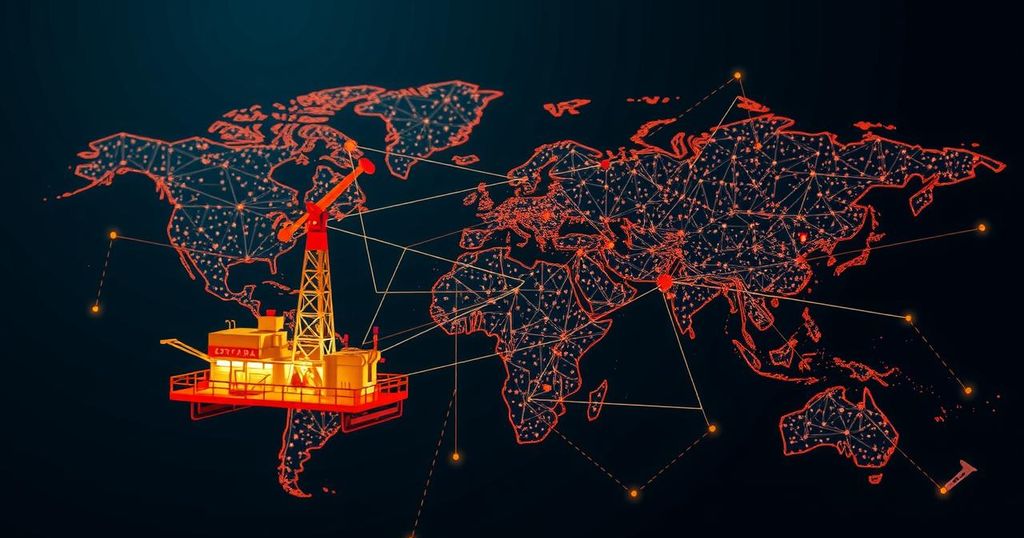Tutu Alicante’s personal experiences highlight the lack of basic healthcare in Equatorial Guinea despite its oil wealth. Recent disclosures by major oil companies reveal billions in payments to governments, prompting discussions about corporate accountability and transparency in resource management. The findings indicate significant disparities in taxes paid, particularly aligning with accusations of predatory deals disadvantaging local populations. Advocates call for reforms to ensure equitable distribution of natural resource wealth as the world transitions to renewable energy.
In the wake of alarming health crises linked to poor hospital conditions, Tutu Alicante, an advocate for transparency in Equatorial Guinea, shared personal tragedies stemming from the country’s lack of basic healthcare despite its oil wealth. During a recent webinar, he highlighted a historic disclosure of payments made by major American oil companies, such as ExxonMobil and Chevron, to governments globally. These disclosures, mandated by the U.S. Securities and Exchange Commission as part of the Dodd-Frank act, represent substantial financial transactions – totaling tens of billions – intended to shed light on corporate payments to mitigate corruption and improve governance in resource-rich countries. Equatorial Guinea, once buoyed by the oil boom initiated by Mobil in the 1990s, has seen little improvement in socioeconomic conditions for its citizens, with many still suffering from inadequate healthcare systems. For the first time, the people can now see the monetary contributions from corporations like ExxonMobil, which paid $189.2 million to the government last year, in stark contrast to the billions paid to other nations. The disclosures unveil discrepancies in payments between countries, raising questions about whether the U.S. is receiving fair compensation from these corporations. Notably, despite U.S. domination in Exxon and Chevron’s production, the amounts reported paid in taxes are significantly lower than those paid to other nations such as the United Arab Emirates. This detail has prompted advocates to call for a reevaluation of how profits and taxes are distributed, especially as Congress considers potential reforms to fossil fuel taxation. The report highlights a broader pattern of predatory deals that can disadvantage citizens of resource-rich nations, where corporate profits do not translate into public benefit. Moreover, the implications of these disclosures extend beyond national borders, influencing global policies and investment strategies in light of the ongoing transition to renewable energy. Advocacy groups continue to push for more transparency and accountability in resource management and corporate governance, underscoring the need for equitable distribution of natural resource wealth. Despite obstacles posed by the oil industry, the disclosures mark a critical step towards improved financial transparency and could catalyze significant changes in both policy and public discourse regarding corporate accountability in resource management.
The article discusses a significant development in corporate transparency regarding payments made by oil and gas companies to governments worldwide, particularly highlighting experiences from Equatorial Guinea. It references the historical background of oil exploration in the country that has not translated into improved living conditions for its citizens. This narrative serves as a backdrop for understanding the emerging data on corporate payments, indicating a broader critique of how wealth from natural resources often fails to reach the populace. It also situates this conversation within the framework of U.S. regulatory changes and their implications for international financial practices and governance.
The recent disclosures mandated by the SEC reveal considerable financial transactions made by major oil and gas companies to governments, illustrating stark disparities in tax contributions between countries. This situation raises concerns regarding economic fairness, both in the U.S. and internationally. The testimonies of individuals like Tutu Alicante underscore the human cost of such inequities, compelling stakeholders to advocate for greater accountability and reform in resource management practices. As the global community shifts towards sustainable energy, these findings may drive changes in policies aimed at better aligning corporate operations with community benefits.
Original Source: insideclimatenews.org






